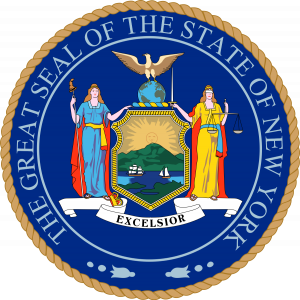
A New York nonresident taxpayer, Edward Zelinsky, recently filed a notice of exception to a Division of Tax Appeals’ (DTA) determination that he must allocate all his wages to New York under the so-called “convenience of the employer” rule.[1] Zelinsky, a Connecticut resident who had previously challenged New York’s controversial sourcing rule, petitioned the DTA after the Department of Taxation and Finance (Department) denied his personal income tax refund claims for the 2019 and 2020 tax years. Although he was required to work from his Connecticut residence during the COVID-19 pandemic, which covered most of the 2020 tax year, the DTA upheld the rule allocating all Zelinsky’s wages to New York.[2]
The Department’s regulations generally require nonresidents to allocate income to New York using a ratio of days worked in the state to total working days. However, a nonresident’s working days outside New York include only those days “which of necessity, as distinguished from convenience” require the employee to perform services outside the state.[3] Since Zelinsky’s first challenge to the convenience of the employer rule, the Department has issued stringent guidance restricting an employee’s ability to allocate days outside New York to the extent the employee is merely assigned to a New York office.[4]
On March 16, 2020, Zelinsky’s employer shut down in-person activity in compliance with then-Governor Cuomo’s COVID-19 executive order. Thereafter, Zelinsky did not have a classroom or office available to him at his employer’s campus and did not physically enter the state. Zelinsky argued that the convenience rule did not apply to any income earned starting March 16, 2020. Specifically, Zelinsky asserted that his wages were not New York source income because his services were performed wholly without the state during the pandemic or, alternatively, that the portion performed outside the state during the pandemic was performed there by necessity.
The Administrative Law Judge (ALJ) held that the convenience of the employer rule applied to Zelinsky’s income because he worked physically from New York in 2019 and until March 15, 2020. Further, the ALJ found that Zelinsky did not perform his services outside New York by necessity during the pandemic despite the global shutdown. The ALJ cited the U.S. Supreme Court’s Wayfair[5] decision abolishing the physical presence nexus requirement for sales and use tax purposes and noted that “[i]n this modern economy with its internet technology, one can be present in a state without needing to physically be there.” Relying on Wayfair, the ALJ found that Zelinsky had “remotely connected to” his New York office to find that he had a “virtual presence” in the state during the pandemic. Zelinsky filed a notice of exception and will next challenge the rule before the New York State Tax Appeals Tribunal.
Matter of Zelinsky, DTA Nos. 830517 & 830681 (N.Y.S. Div. of Tax App. Nov. 30, 2023).
[1] 20 NYCRR 132.18(a).
[2] Zelinsky v. Tax Appeals Trib., 1 NY3d 85 (2003).
[3] 20 NYCRR 132.18(a).
[4] See TSB-M-06(5)I (May 15, 2006).
[5] S. Dakota v. Wayfair, Inc., 138 S. Ct. 2080 (2018).
 SeeSALT Blog
SeeSALT Blog

